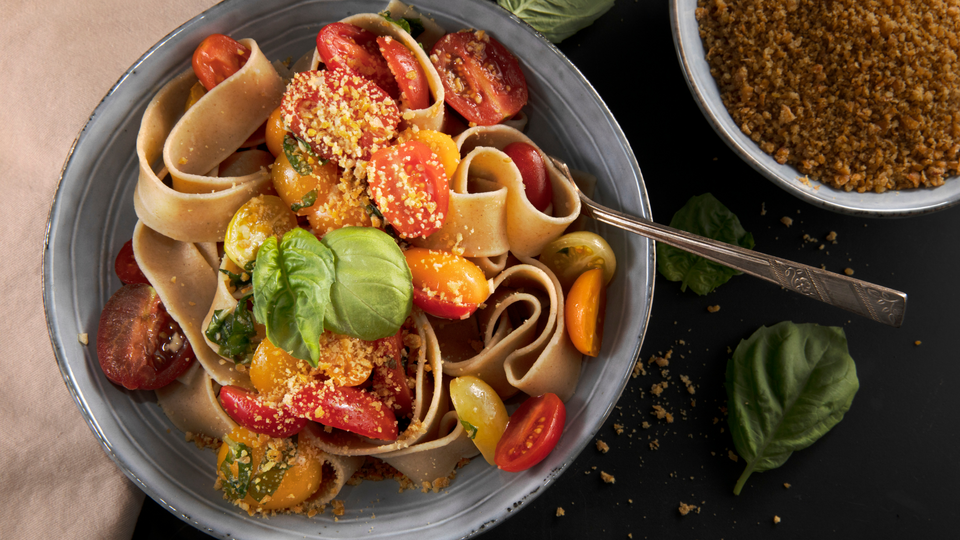How to start a plant-based diet?
What is a plant-based diet?
A plant-based diet, or plant-forward diet, is one that is concentrated on foods that derive mainly from plants. Lots of nuts, seeds, whole grains, oils, legumes, beans, fruits, vegetables, herbs, and spices usually feature in a plant-based diet.

Processed foods and animal products like red meat, poultry, fish, eggs, as well as dairy are usually avoided.
There are several types of plant-based diets, with some stricter than others:
Vegan diet: The vegan diet is most likely the strictest type of a plant-based diet that completely excludes all animal products. This implies that meat, fish, seafood and dairy products are not consumed at all.
Vegetarian diet: If you are on a vegetarian diet, you may still consume eggs and dairy products despite avoiding meat, fish, poultry, and seafood.
Mediterranean diet: A diet like this concentrates on plant-based foods but also includes fish, eggs, poultry, yogurt, and cheese a couple of times a week. You rarely consume meat and sweets.
Semi-vegetarian or flexitarian diet: You may consume eggs, dairy, and occasionally meat, fish, seafood, as well as poultry on such a diet.
Pescatarian diet: This diet includes just fish, seafood, eggs, and dairy, as well as what vegetarians and vegans may consume. You avoid all meat and poultry here.
How to begin a plant-based diet?
Start with convenient options: Plant-based pizzas, meat substitutes, pasta dishes, and other meals can be found in your local grocery stores.
Use meal delivery services: Meal delivery services dispatch pre-made meals or ingredients right to your doorstep. Select what plant-based food that fits your lifestyle.
Consume lots of vegetables: Cover half of your plate with vegetables for lunch and dinner. Choose plenty of vegetables in various colours. Snack on your vegetables with salsa or hummus to make them tastier.
You can still eat meat but eat it differently: Rather than consume meat as your main course, consume meat on the side if you opt for a more flexible plant-based diet.
Prepare a vegetarian meal weekly: You do not have to exclude meat altogether from your life. Gradually consume vegetarian meals focused on beans, vegetables, and whole grains. Use olive oil, nuts, avocados, nut butters, and olives. Begin with greens like spinach or romaine lettuce.
Consume whole grains for breakfast: For breakfast, opt for quinoa, oatmeal, buckwheat, or barley. Incorporate some nuts, seeds, and fresh fruit for a tastier meal.
Consume fruit for dessert. A juicy apple or a ripe melon can be consumed as dessert instead of ice cream [1].
If you want to include animal products in your plant-based diet, try to obtain them from local farms. Otherwise, use quality animal products from your grocery stores.
- Eggs: Get eggs fresh and pasture-raised.
- Poultry: Opt for organic and free-range poultry.
- Beef and pork: Opt for grass-fed and pasture-raised options.
- Seafood: Opt for wild-caught seafood if possible.
- Dairy: Organic dairy products from pasture-raised animals [2]
Avoid the following foods:
- Fast food: McDonald’s burgers, fried chicken wings, etc.
- Sugars and sweets: White sugar, pastries, soda like Coca Cola.
- Refined grains: White bread, white rice, bagels, etc.
- Packaged and convenience foods: Frozen dinners, chips, crackers, etc.
- Processed vegan-friendly foods: Lab plant-based meats as well as Tofurkey, faux cheeses, vegan butters, etc.
- Artificial sweeteners
- Processed animal products like beef jerky and bacon [2]
What are the disadvantages of a plant-based diet?
One major disadvantage of a plant-based diet is that you are likely to miss out on certain important nutrients like the following:
Vitamin B12
When you lack vitamin B12, you can suffer from anemia and damaged nerves. B12 can only be naturally found in animal products.
Iron
Your body does not consume and absorb iron from plants as efficiently as it uses iron from meat. Consume beans, spinach, and raisins to enhance your iron intake.
Calcium
You can have a lack of calcium when you do not consume dairy products.Enhance your calcium intake but consuming tofu and green leafy vegetables.
Omega-3s
You need omega-3 fatty acids found in fish for healthy nails and skin. Consume walnuts, ground flaxseed, flaxseed oil, and canola oil to improve your omega-3 intake [3].
When you adopt a plant-based diet, you would miss out on omega-3 fatty acids found in salmon.
Dairy products offer you a good source of calcium.
Opt for grass-fed beef when you include some meat in your diet.
You may find it challenging to:
- Give up foods you enjoy
- Find affordable plant-based restaurant meals
- Learn how to follow a plant-based diet
- Give up family eating habits and traditions
A plant-based diet demands a lot of time and commitment for you to read food labels, spend more on plant-based food products as well as shop carefully.
References
[1] A. Benisek, “Plant-based diet tips for Beginners,” WebMD. [Online]. Available: https://www.webmd.com/diet/plant-based-diet. [Accessed: 06-Sep-2022].
[2] J. Kubala, “Whole-Foods, plant-based diet: A detailed beginner’s guide,” Healthline, 12-Jun-2018. [Online]. Available: https://www.healthline.com/nutrition/plant-based-diet-guide#foods-to-eat. [Accessed: 06-Sep-2022].
[3] “What are the negatives of a plant-based diet?,” MedicineNet, 30-Nov-2021. [Online]. Available: https://www.medicinenet.com/what_are_the_negatives_of_a_plant_based_diet/article.htm. [Accessed: 06-Sep-2022].
Tools Designed for Healthier Eyes
Explore our specifically designed products and services backed by eye health professionals to help keep your children safe online and their eyes healthy.

